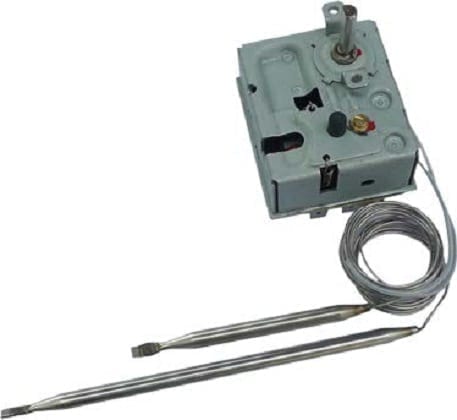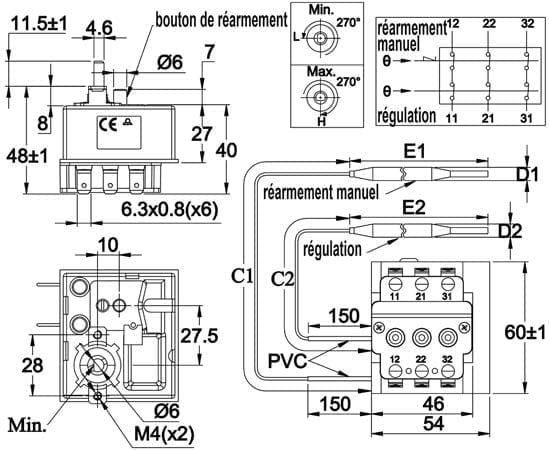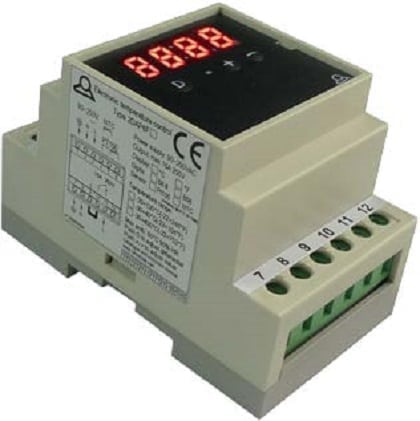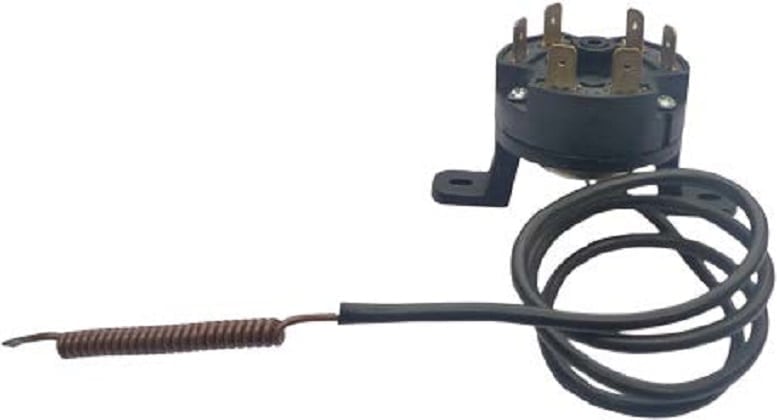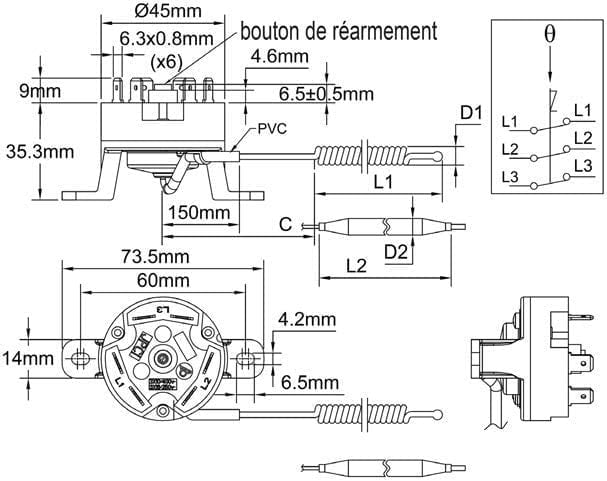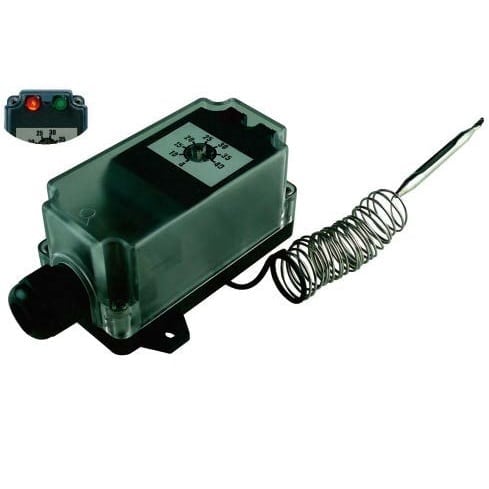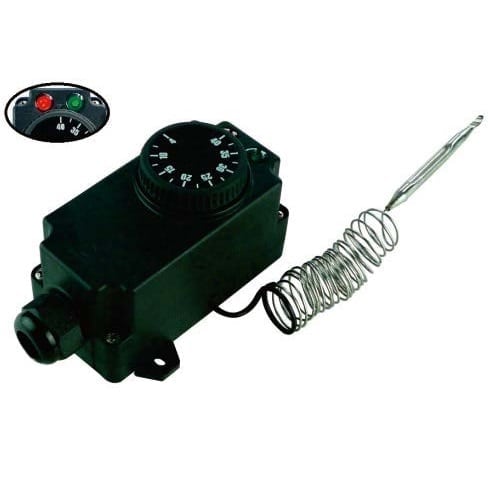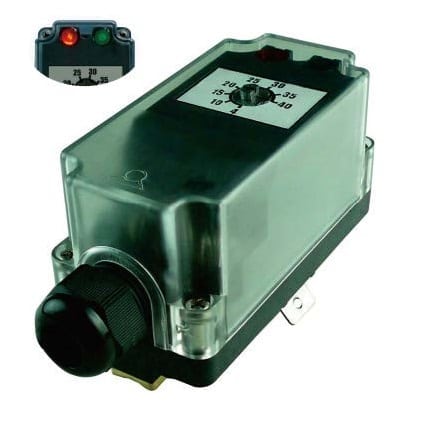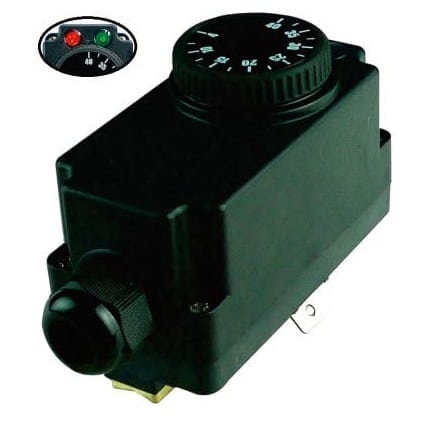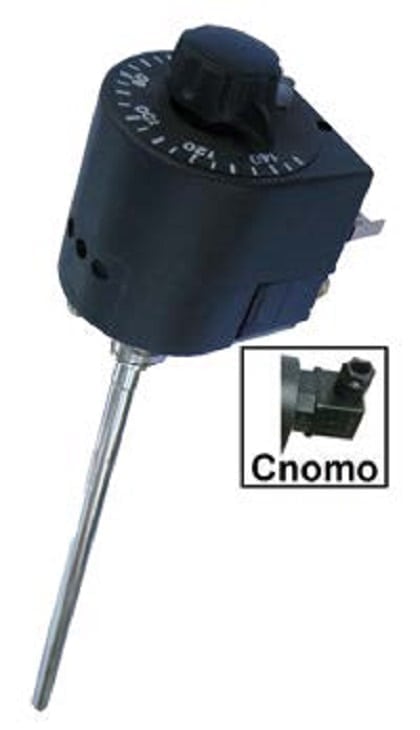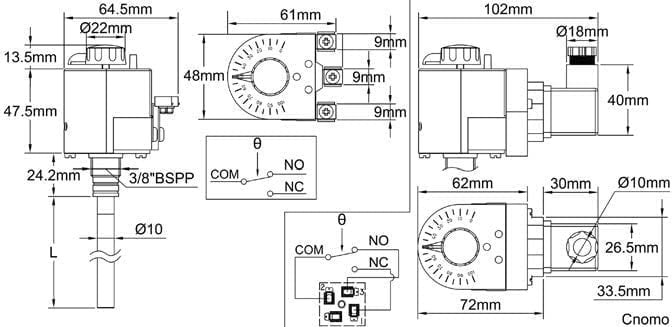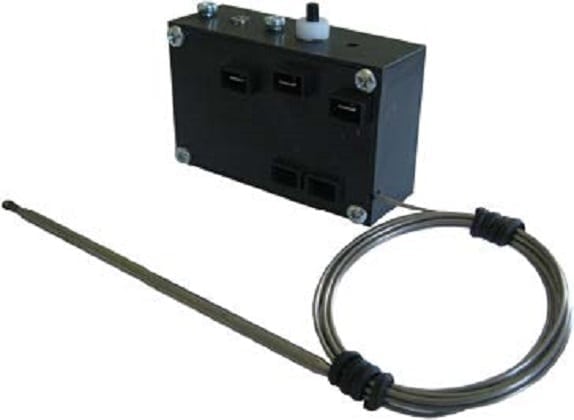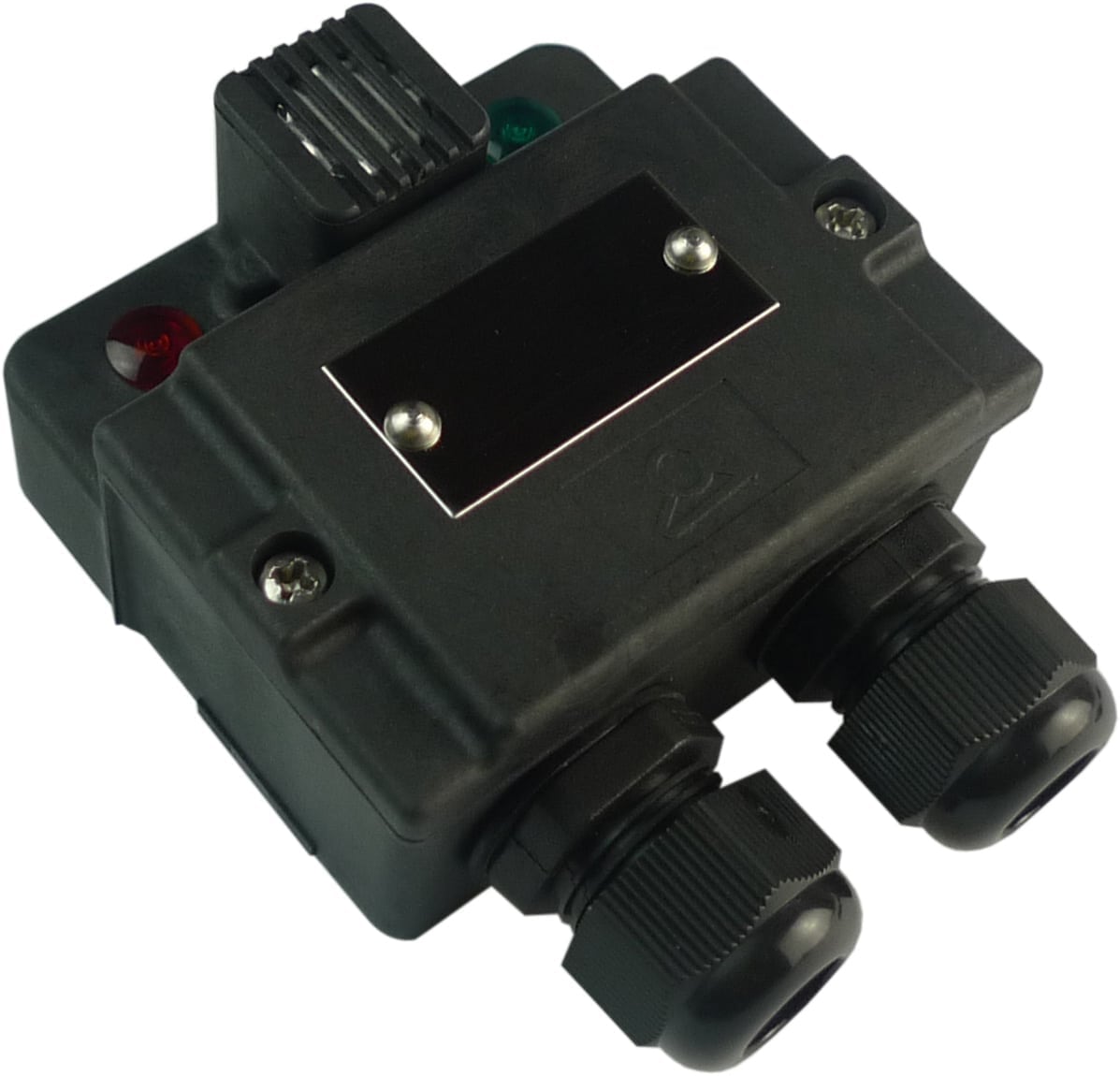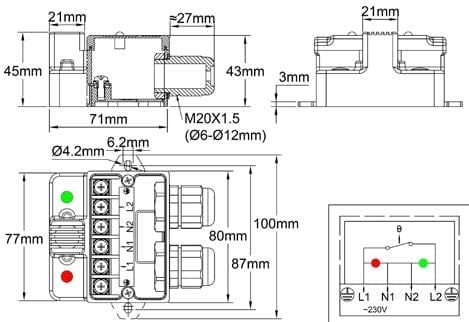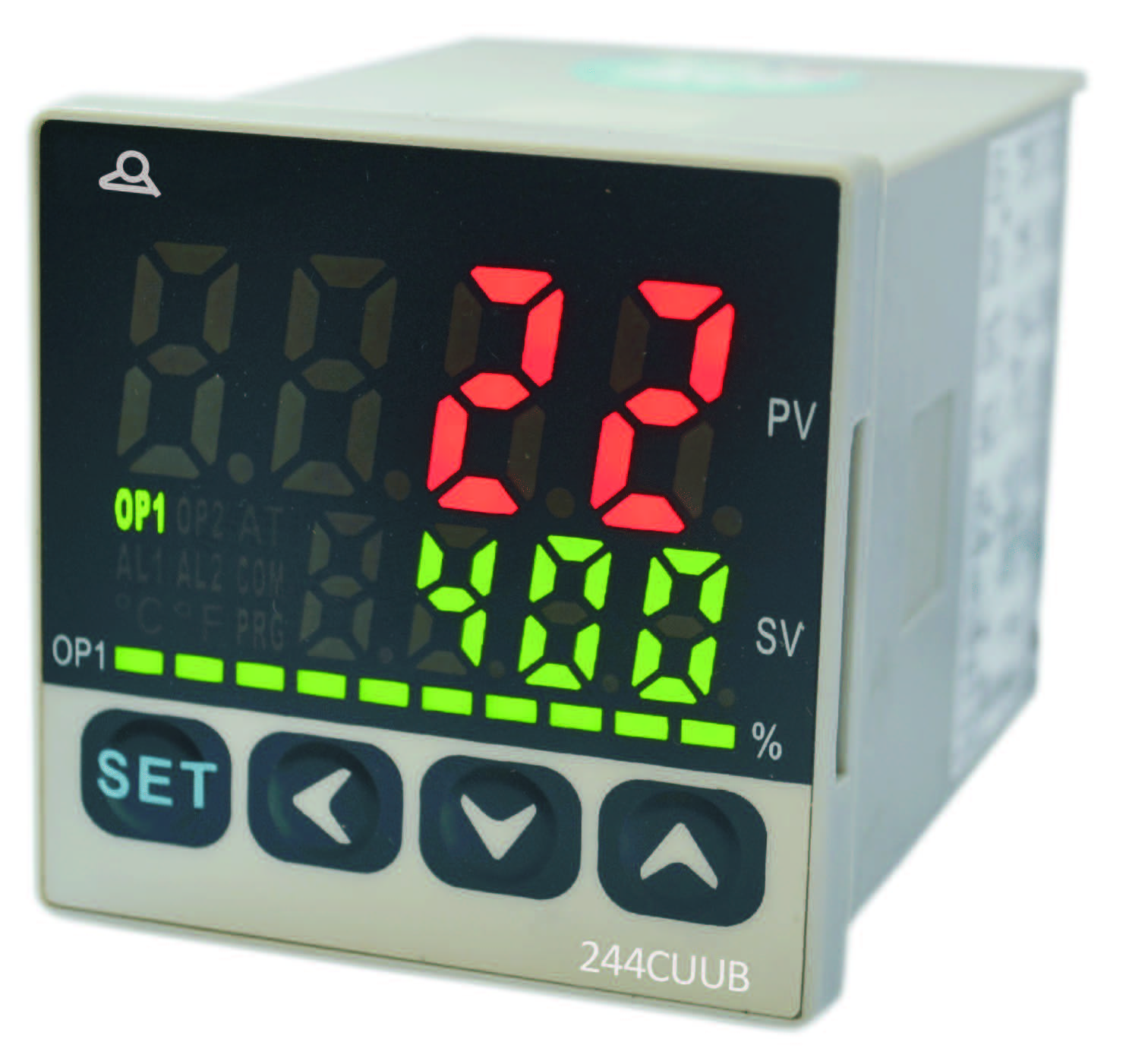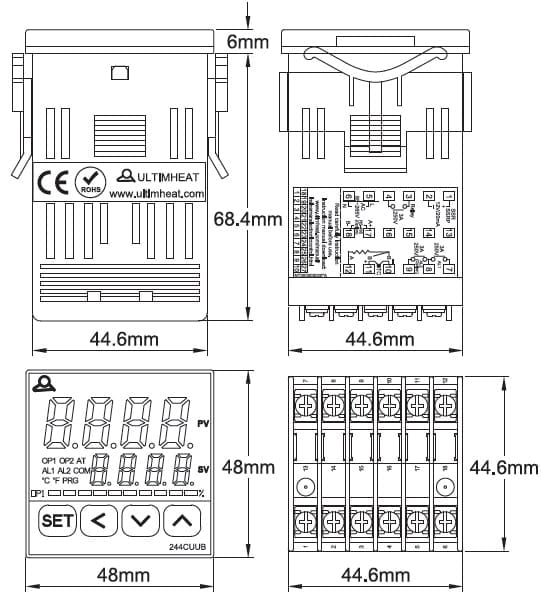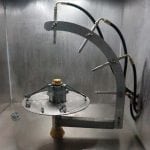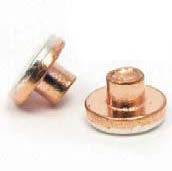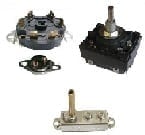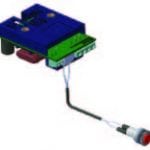3 pole combination control thermostat
Housing dimensions: 60 x 54 x 48 mm (without terminals)
Bulb and capillary: stainless steel, capillary length 1500 mm, 150 mm long PVC sleeve on capillary.
| Electrical rating | |
|---|---|
| Temperature adjustment range (°C) | |
| Manual reset temperature (°C) |
TECHNICAL FEATURES
Housing dimensions: 60 x 54 x 48 mm (without terminals)
Bulb and capillary: stainless steel, capillary length 1500 mm, 150 mm long PVC sleeve on capillary. Capillary minimum bending radius 5 mm.
Temperature sensing element: liquid filled bulb and capillary.
Terminals: 6.35 x 0.8 quick connect terminals. M4 screws also available on request.
Adjustment: Dia. 6 mm shaft with 4.6 mm flat, (other lengths or fixed setting available on request).
Manual reset: fail safe, fixed setting, front access reset button
Fail safe contact action by low temperature: Temperatures under -15°C (5°F) will trigger the manual reset.
Mounting: Front bracket with 2 x M4 threads, 28 mm distance
Rating: 3 x16A 250VAC, 10A 400VAC (res.)
Contacts: 3 poles ST (snap action contact)
Downloads
Related products
Electronic control thermostats
Bulb and capillary temperature limiters
Remote temperature control boxes
Bulb and capillary thermostat IP55 with 2 built-in pilot lights
Remote temperature control boxes
Dia. 30 to 70mm pipe mounting thermostat IP55 with 2 built-in pilot lights
Bimetal rod thermostats
Bulb and capillary temperature limiters
Room and antifreeze temperature control boxes
Fixed setting ambiance or antifreeze thermostat, IP65 cable gland output, two pilot lights
Electronic control thermostats
Technical informations associated to this product
-
Electrical protection classes
The housings are designed to protect electrical equipment located inside. This protection must be considered in the electrical and environmental angles.) -
Electrical contacts
As numerous mechanisms exist, we decided not to distinguish on the basis of constructive technique, but according to their operation speed, which is the key element. -
Description of temperature controls
Used as control thermostats or as a safety thermostat with manual reset, these thermostats have a disc made of two different metals laminated together for temperature sensing element. These two metals have different expansion coefficients. -
Thermostats installation
The proper functioning of a thermostat depends primarily on the correct choice of the component, but also the conditions of its installation. Conditions used to calibrate regulating and control equipment in the factory are always ideal laboratory conditions, ensuring measurement accuracy and repeatability. These conditions are rarely those found in practice when installing thermostats. However, with a minimum of constraints, it is possible to optimize assemblies.

